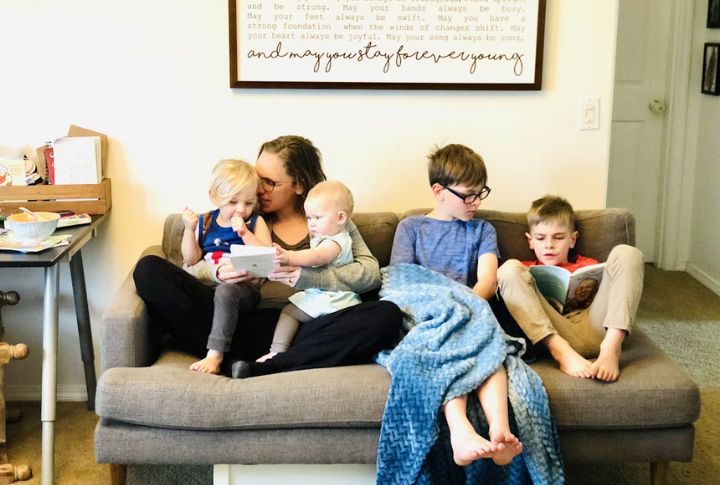
Marriage can be confusing when everything appears perfect on the surface. You might notice your spouse being extra agreeable or overly generous—all seemingly positive traits. Yet something is off, and you can’t pinpoint why the connection feels distant despite these “good” behaviors. These patterns might be telling a completely different story than you think.
Constant Agreeableness

When a wife always agrees and avoids expressing preferences, it may look supportive but signals suppressed needs. Such behavior stems from fearing conflict or rejection. Over time, constant self-silencing creates resentment and invisibility, which leaves her role reduced to maintaining peace instead of a genuine partnership.
Excessive Busyness At Home

An overly busy partner may appear hardworking, but she hides emotional discomfort behind nonstop tasks. Chores and organization can serve as a distraction from feelings of loneliness or unmet intimacy needs. Constant work also replaces rest and meaningful connection while reinforcing the belief that her worth lies only in service.
Over-Giving Financially Or Materially

Although showering partners or family with gifts seems thoughtful, it reflects emotional compensation. Instead of openly expressing pain or unmet needs, she invests in material giving, hoping it restores closeness. But when affection doesn’t return, the cycle fuels disappointment, which may set her further apart from her husband.
Self-Sacrificial Caretaking

Glorified in many households, complete self-sacrifice can quietly erode identity. By neglecting personal needs, devotion is framed as strength. However, prioritizing family above all leaves one invisible and unfulfilled. This extreme caretaking also causes individuality to fade until work becomes the only space where worth and value seem to exist.
Excessive Apologizing

Frequent apologies may convey humility, but they can conceal a fear of conflict or rejection. By saying “sorry” constantly, even without fault, she hopes to diffuse tension and gain acceptance. This recurring self-blame erodes her confidence and establishes unequal power dynamics. In fact, she ends up masking unhappiness under the guise of relentless politeness and guilt.
Relentless Positivity

Her constant cheerfulness and quick jokes often cover deep frustration or sadness. In fact, by consistently brushing off conflicts with “it’s fine,” she avoids vulnerability and emotional exposure. While others may praise her optimism, the effort to uphold this facade drains her silently, leaving a gap between outward appearance and inner emotional reality.
Playing The Relentless Mediator

Whenever tension flares, you see your wife being the first to intervene—soothing arguments, calming tempers, and solving disputes that aren’t hers. Initially, it feels like a natural role, but you should realize that she rarely has space for her own feelings. The unending responsibility of keeping harmony slowly erodes her sense of equality in the relationship.
Avoidance In Decision-Making

Avoiding decision-making signals lost personal agency. When she habitually defers choices, the relationship slowly becomes unbalanced. Over time, she feels disconnected from her own life and invisible in partnership, as if her desires and opinions hold less weight than her partner’s, creating subtle tension and dissatisfaction.
Child-Centered Living

Have you noticed that almost all her energy goes into the children, while your marriage and personal needs remain on hold? Although devotion to them feels noble, defining herself solely as ‘mom’ risks losing her individual goals and identity. Plus, without nurturing her own dreams, life can feel unbalanced and emotionally unfulfilling.
Performative Intimacy

The problem emerges when physical affection becomes an act rather than a genuine connection. She engages enthusiastically to avoid rejection or maintain peace, but neglects her own desires and emotional needs. This performance also creates distance even during closeness.

